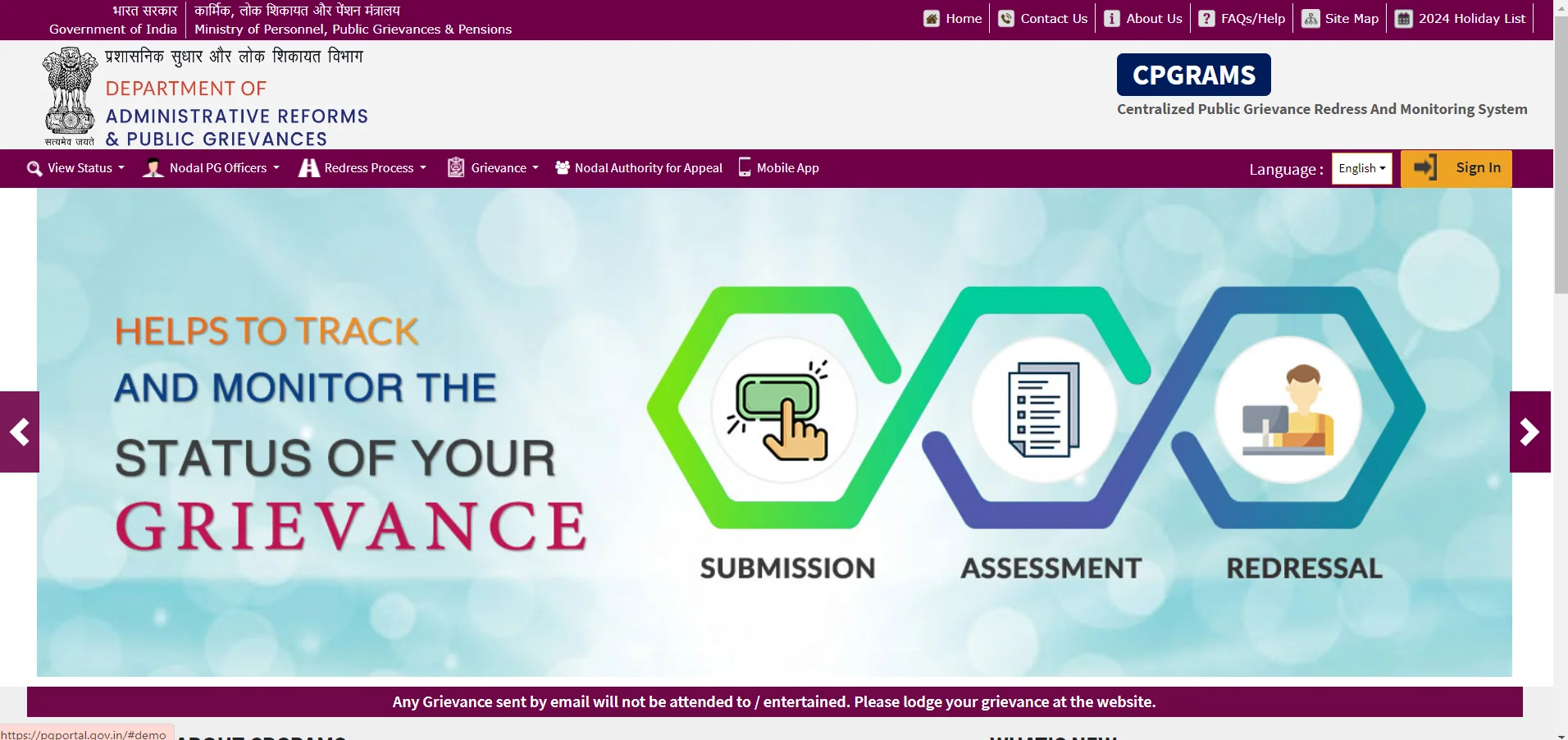CPGRAMS recognized as a best practice in Commonwealth
About CPGRAMS
- Centralised Public Grievance Redress and Monitoring System (CPGRAMS) is an online platform available to the citizens 24×7 to lodge their grievances to the public authorities on any subject related to service delivery.
- Launched in 2007, it is a single portal connected to all the Ministries/Departments of Government of India and States.
- The online web-enabled system was developed by the National Informatics Centre, under the Ministry of Electronics and Information Technology (MeitY) in association with the Department of Administrative Reforms and Public Grievances (DARPG).
- It has been developed with an objective of speedy redress and effective monitoring of grievances by Ministries/Departments/Organizations of Government of India.
- It enables the citizen to track online the grievance with the unique registration ID provided at the time of registration of the complainant and also enables DARPG to monitor the grievance.
- CPGRAMS also provides an appeal facility to the citizens if they are not satisfied with the resolution by the Grievance Officer.

Why in News?
- The Commonwealth Secretariat has recognized Centralised Public Grievance Redress and Monitoring System (CPGRAMS) of India as a best practice in Commonwealth Secretaries of Public Service/ Secretaries to Cabinet meeting that took place in Marlborough House, London.
- The primary objectives of the meeting were to share contemporary knowledge, ideas and experiences on how technology could be leveraged to support provision of e-services for optimal service delivery and achievement of the 2030 Agenda for Sustainable Development across the Commonwealth.
- It also aimed at sharing select relevant case studies of some member countries and to identify opportunities for possible partnership and collaboration.
Commonwealth Grouping
- The Commonwealth is a voluntary association of more than 50 independent and equal countries (including India) in Africa, Asia, the Americas, Europe and the Pacific.
- It is home to 2.5 billion people, and includes both advanced economies and developing countries. 32 of the members are small states, including many island nations.
- The member governments have agreed to shared goals like development, democracy and peace.
- The Commonwealth’s roots go back to the British Empire. But today any country can join the modern Commonwealth. Gabon and Togo joined the Commonwealth in 2022, becoming the latest nations with no historic ties to Britain to enter the grouping.
- Leaders of the Commonwealth countries meet every two years at the Commonwealth Heads of Government Meeting (CHOGM).
Subscribe
Login
0 Comments
